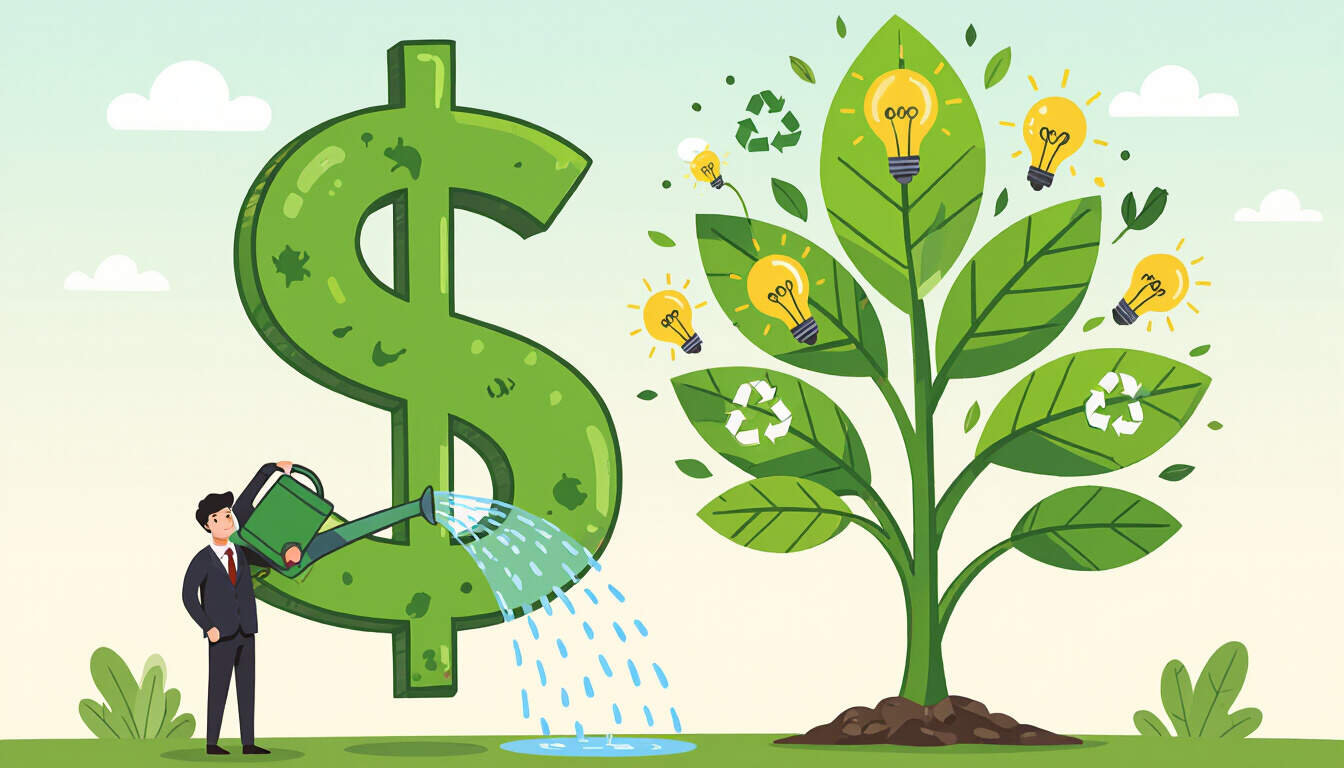Sustainable Business Practices: A Path to Entrepreneurial Innovation
 by Verner Mayer
by Verner Mayer
Sustainable business practices offer entrepreneurs a way to build profitable ventures while protecting the environment. By focusing on eco-friendly strategies, startup founders can achieve long-term growth and positive impact. This article explores key methods and real-world examples for success.

Sustainable business practices are essential for modern entrepreneurs aiming to create ventures that thrive without harming the planet. These practices involve integrating environmental considerations into daily operations and decision-making processes. For instance, sustainable business practices help reduce waste and conserve resources, leading to cost savings over time.
In business development, adopting these methods can foster resilience. Entrepreneurs often face resource constraints, but by prioritizing sustainability, they build a foundation for enduring success. One effective approach is sourcing materials from renewable sources, which minimizes environmental impact while maintaining quality.
Companies like Patagonia have demonstrated the value of this strategy. They focus on durable products and ethical sourcing, showing how entrepreneurship can align with ecological goals. This example highlights the potential for innovation in product design and supply chains.
To implement sustainable practices, entrepreneurs can start with simple changes. First, conduct an energy audit to identify inefficiencies in operations. Then, switch to energy-efficient technologies where possible. These steps not only lower costs but also appeal to eco-conscious consumers.
Another key area is waste management. Businesses can adopt circular economy principles, where materials are reused or recycled. For example, a startup in the fashion industry might use recycled fabrics, turning potential waste into valuable assets.
Challenges exist, such as higher initial costs for green materials. However, many entrepreneurs overcome this by seeking grants or partnerships. Government incentives often support such initiatives, providing financial relief and encouragement.
Benefits of Sustainable Approaches
The advantages extend beyond environmental protection. Sustainable practices can enhance brand reputation, attracting loyal customers. In competitive markets, companies that prioritize these methods often see increased demand for their products.
For startup founders, this means building a strong market position. By embedding sustainability into the core business model, entrepreneurs create differentiation. This strategy can lead to partnerships with like-minded organizations, expanding opportunities.
Real-world success stories abound. Consider a small tech firm that developed solar-powered devices. Through innovative design, they reduced reliance on non-renewable energy, gaining recognition and investor interest. Such cases inspire others to integrate similar ideas.
Practical Steps for Implementation
Entrepreneurs can follow a structured plan to adopt these practices:
- Assess current operations for environmental risks.
- Set clear, measurable goals for sustainability.
- Train employees on eco-friendly procedures.
- Monitor progress and adjust strategies as needed.
These actions form a roadmap for change. For instance, a food business might focus on local sourcing to cut transportation emissions, supporting community economies in the process.
Innovation plays a crucial role here. Entrepreneurs who experiment with new technologies, like biodegradable packaging, can stay ahead of trends. This not only meets regulatory requirements but also drives product improvement.
In the long term, sustainable innovation leads to financial stability. Businesses that adapt early avoid future penalties and gain a competitive edge. As consumer preferences shift toward ethical options, these practices become a key driver of growth.
Inspiring the Next Generation
Aspiring entrepreneurs should view sustainability as an opportunity for positive change. By incorporating these principles, they contribute to broader societal benefits, such as improved public health and biodiversity.
Professional networks and industry events offer platforms for learning. Founders can share experiences and collaborate on projects, fostering a community of like-minded individuals. This collective effort amplifies impact and encourages ongoing improvement.
Ultimately, the journey toward sustainable business involves commitment and creativity. Entrepreneurs who embrace this path not only achieve their goals but also leave a lasting legacy for future generations.
